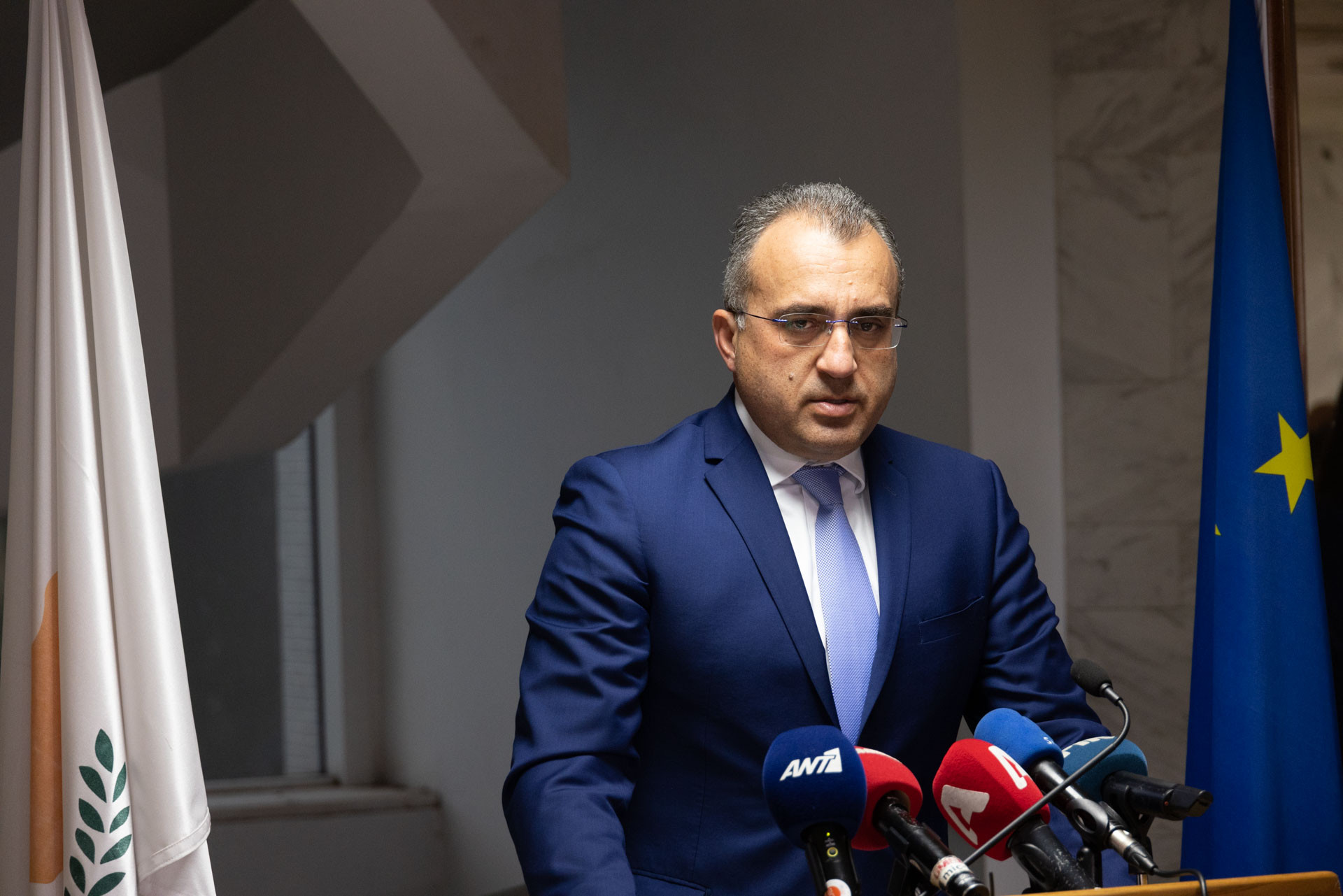Cyprus students return to school under tighter COVID-19 testing rules; home visits are limited to ten people, while church attendance and hospitality have extra crowd limits.
The fifth wave of COVID-19 infections, powered by the more transmissible Omicron variant, pushed daily cases to an all-time high of 5,457 on Tuesday.
On Wednesday, the cabinet approved a series of stricter measures to stem the tidal wave of infections.
Health Minister Michalis Hadjipantelas called on the public to join forces with authorities and trust the science.
“The increased transmissibility of Omicron in relation to the Delta variant brought record cases, but our health system endures. If we join forces for the common good, it will continue to endure.
“Doctors and scientists alone cannot defeat the pandemic…it can only be defeated by ordinary citizens following the instructions of the scientific and medical community,” said the minister.
Hadjipantelas said that all primary and secondary school students and staff would return to classes on Monday with a negative rapid or PCR test not older than 48 hours.
Afterwards, primary and secondary school students will have to take a test every 72 hours.
Kindergartens will be opening on 7 January with the same protocols as previously.
As of Thursday, house visits will be reduced to ten people from 20, not including children under 12.
Monday will see the introduction of tighter rules on hospitality venues as restaurants, bars, nightclubs, and social events such as weddings and christenings, which are reduced to 200 people from 300.
The maximum number of people allowed to be seated at a table is limited to eight.
Dancing is strictly prohibited, with table service only.
Churches
The 200 limit is also applicable to churches on Thursday, Epiphany day.
The health minister said people attending outdoor religious events such as the blessing of waters must keep to social distancing and wear face masks.
The cabinet also decided to tighten Safe Pass regulations.
Cypriots who enter shops or hospitality venues need to provide proof of their identity matching their Safe Pass documents.
From 10 January, businesses must send half of their employees to work from home, increasing the limit from 40%.
Hotel doors will be closed to the unvaccinated.
To enter a tourist accommodation, people must have started their vaccination regime and be on schedule for their second and third dose of a COVID-19 vaccine.
Authorities will also provide vaccinated people over 12 with another five self-test kits.
Close contacts will have to take a rapid or PCR test on the third and fifth day from their last contact with a positive case.
People residing at nursing homes and other closed structures will not be allowed to leave the premises.
Authorities have also decided to wave quarantine requirements for eight African countries, where the Omicron variant first appeared.
A PCR testing regulation for all arrivals will remain in effect.
However, authorities from Monday require all passengers over 12 to carry a 72 hour negative PCR test instead of 48 hours as previously requested.
Hadjipantelas said that people who refuse to get tested would be taken to a state-designated quarantine facility for 14 days, or seven if they agree to undergo a PCR test. The individual will bear the cost.
All measures remain in effect until at least 31 January.










